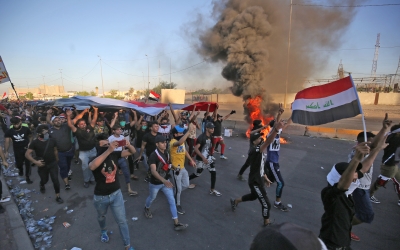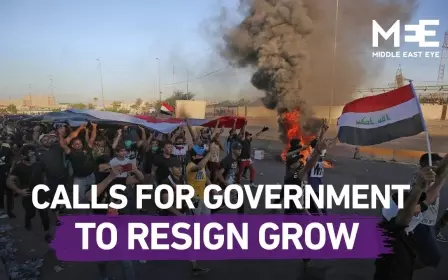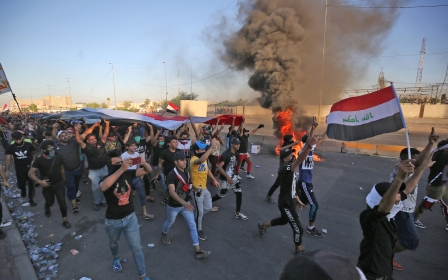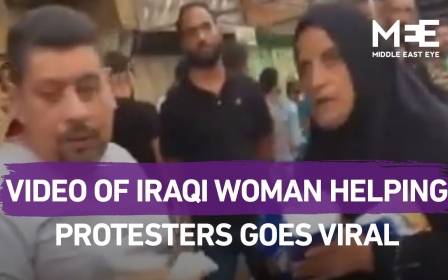Iraqi prime minister promises reforms to appease protesters
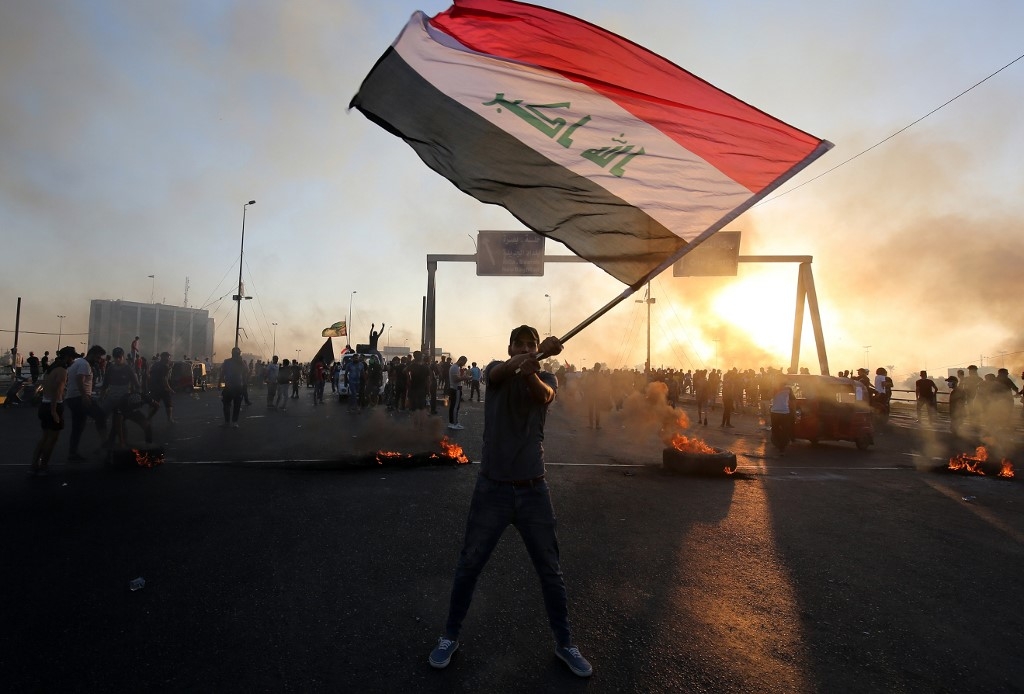
Iraq's prime minister promised on Sunday a series of reforms in an attempt to appease protesters after a week of anti-government demonstrations in which around 100 people have been killed.
Eight protesters were killed in new clashes with security forces in an eastern district of the Iraqi capital on Sunday, medics and security sources told AFP. Demonstrators in several parts of Baghdad's Shia stronghold of Sadr City burned tyres and launched fireworks towards the police amassed there, witnesses said, and shots were also heard in the area.
The interior ministry had earlier said 104 people were killed, including eight members of the security forces, and more than 6,000 wounded in anti-government demonstrations in the capital and the south of the country since Tuesday. It was unclear if the eight protesters were included in that toll, which is the first time the ministry had announced such statistics.
Land distribution and increased welfare payments for needy families are among the 17 reforms proposed after an overnight "extraordinary" session held by Prime Minister Adel Abdul Mahdi's cabinet, which came to power only a year ago.
Abdul Mahdi's decree ordered the construction of 100,000 new housing units. In September, local authorities started the demolition of houses in informal settlements, home to three million Iraqis across the country.
New MEE newsletter: Jerusalem Dispatch
Sign up to get the latest insights and analysis on Israel-Palestine, alongside Turkey Unpacked and other MEE newsletters
In response to staggering youth unemployment, which has reached around 25 percent according to the World Bank, the government said it would create large market complexes and boost benefits for those without work.
Many of the country's disaffected have used online campaigns to raise awareness about the protests and amplify their demands of the government, which responded by shutting down the internet.
Demonstrations have taken place in numerous regions across the country in the past week, including Baghdad, Basra, Nasiriya and Mosul.
Concrete barriers have been erected in the capital Baghdad in areas where police clashed with protesters, a significant move in a period when many of the previous concrete barriers erected to prevent car bombings were being removed.
The public sector remains the largest employer in Iraq, a country of 40 million people, but it has struggled to absorb new university graduates in recent years.
In the southern city of Kut last month, a young Iraqi man died after he set himself alight in despair after authorities seized his mobile kiosk.
The government has officially designated those killed as "martyrs", granting their families a special set of benefits.
The majority of protesters killed were struck by bullets, according to medical sources, who said on Friday that six police officers have also been killed.
The authorities have accused "saboteurs" and unidentified snipers of targeting protesters.
Starting on Tuesday, protesters gathered in Baghdad and spread to the country's Shia-majority south, defying an internet blackout, tear gas and even live rounds.
The mainly male, young crowds say they are not backed by any political or religious establishment and have attacked a broad range of political party offices.
"We don't want parties anymore. We don't want anyone to speak in our name," one protester told the AFP news agency on Friday.
Authorities have asked protesters to give them time to implement reforms.
"Five days of reported deaths and injuries: this must stop. I call on all parties to pause and reflect," the head of the UN mission to Iraq, Jeanine Hennis-Plasschaert, wrote on Twitter.
Middle East Eye delivers independent and unrivalled coverage and analysis of the Middle East, North Africa and beyond. To learn more about republishing this content and the associated fees, please fill out this form. More about MEE can be found here.


